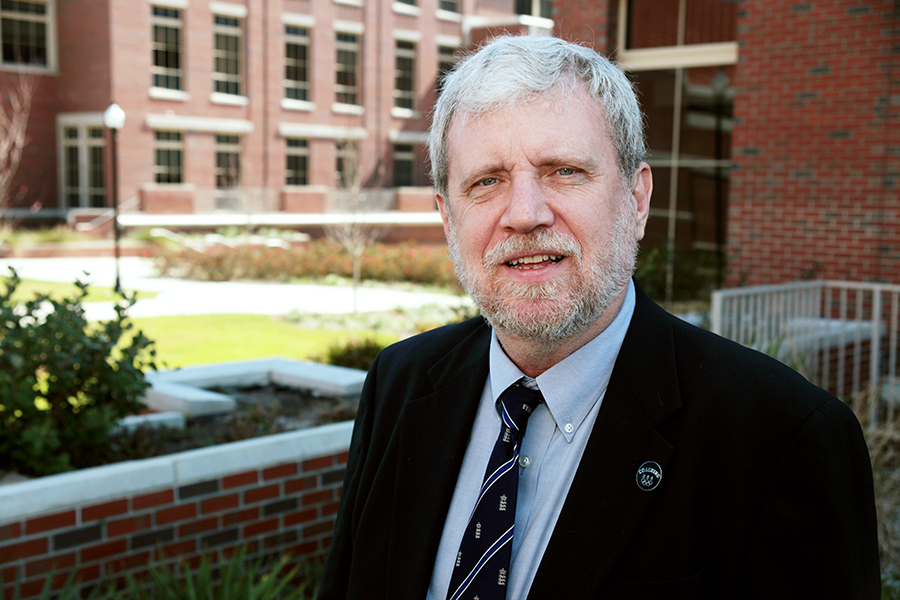
Florida State University Professor K. Anders Ericsson, an internationally renowned psychologist who pioneered the concept that it takes 10,000 hours of practice to become an expert, died June 17. He was 72.
Ericsson, the Conradi Eminent Scholar and Professor of Psychology, spent much of his career studying what makes the world’s top athletes, chess players, musicians and others the best in their fields. His theory that it was not innate talent but thousands of hours of very focused, “deliberate” practice led to him becoming recognized — ironically — as the world’s foremost expert on expertise.
His research was not only well known among academics but captured the attention of a mainstream audience as well. Malcolm Gladwell’s bestselling book “Outliers: The Story of Success” featured his work, and “Freakonomics” authors Steven Levitt and Stephen Dubner also wrote about Ericsson.
Janet Kistner, vice president for Faculty Development and Advancement and former chair of the Department of Psychology, said Ericsson’s work changed the way researchers think about expert performance.
“Anders was remarkable in so many ways,” Kistner said. “He was remarkable in the impact his scholarship had, and continues to have, on a wide range of academic disciplines and professions in every part of the world. He was remarkable, too, for his commitment to excellence, love of intellectual debates, and an ever-present intellectual curiosity that sparked many discussions and collaborations over the years. For those of us who had the privilege to know and work with him, there is no question that we are all better for our time with him. He will be greatly missed.”
“He shone so brightly, illuminating our field, blazing new paths, lighting the way for so many students and colleagues. He will be sorely missed, but his work will endure.”
— FSU Psychology Professor Neil Charness
Frank Johnson, current chair of the Department of Psychology, said Ericsson was a wonderful mentor and friend.
“For faculty and students of my generation, we grew up in the light of his overwhelmingly curious mind — he was a person of great humility and grace who clearly loved scientific discussion and a good laugh more than his title or the innumerable accolades that he received from all over the world,” Johnson said. “Anders has always been one of the reasons to look forward to coming into the department each day. However, his gift to the world was his work — he democratized human excellence, making it available to anybody willing to put in the work to discover their potential as a human being.”
Early in his career, Ericsson focused on how the mind can improve memory. As a postdoctoral researcher, he worked with a graduate student who, after about 200 hours of training, learned how to hear and repeat 80 random numbers — the most anybody in the world had achieved.
That was the first demonstration that an ordinary person could acquire really remarkable levels of performance through training. After that, Ericsson began analyzing how experts became the best in their fields. He found no scientific evidence that people are born with special gifts — other than perhaps the advantage that certain physical traits will bring to a sport — but instead amassed plenty of research to show that top performers reached superstardom through deliberate practice.
After earning his doctorate in 1976 from the University of Stockholm, Ericsson, a native of Sweden, came to the United States for a postdoctoral fellowship at Carnegie Mellon University. He joined the faculty at Florida State in 1992 after serving on the faculty at the University of Colorado at Boulder.
Ericsson was elected a foreign member of the Royal Swedish Academy of Engineering Sciences in 2010 — the most prestigious honor he said he had ever received.
He was the author of nearly 300 publications and the author or editor of several books, including the 2016 book “Peak: Secrets from the New Science of Expertise,” which he co-wrote with Robert Pool. In addition, his groundbreaking work has been widely cited in major newspapers and magazines.
His colleague and friend FSU Psychology Professor Neil Charness said Ericsson enjoyed collaborating with researchers from around the world, attracted outstanding speakers to the department and inspired both his peers and students alike. Above all, Charness said, Ericsson always showed a genuine interest in others.
“He was and is a superstar,” Charness said. “He shone so brightly, illuminating our field, blazing new paths, lighting the way for so many students and colleagues. He will be sorely missed, but his work will endure. We mourn his death but celebrate a fabulously rich and inspirational life.”
Survivors include his wife, Dr. Natalie Sachs-Ericsson, an FSU faculty member; children Lina and Jens; and grandson Jakob.



